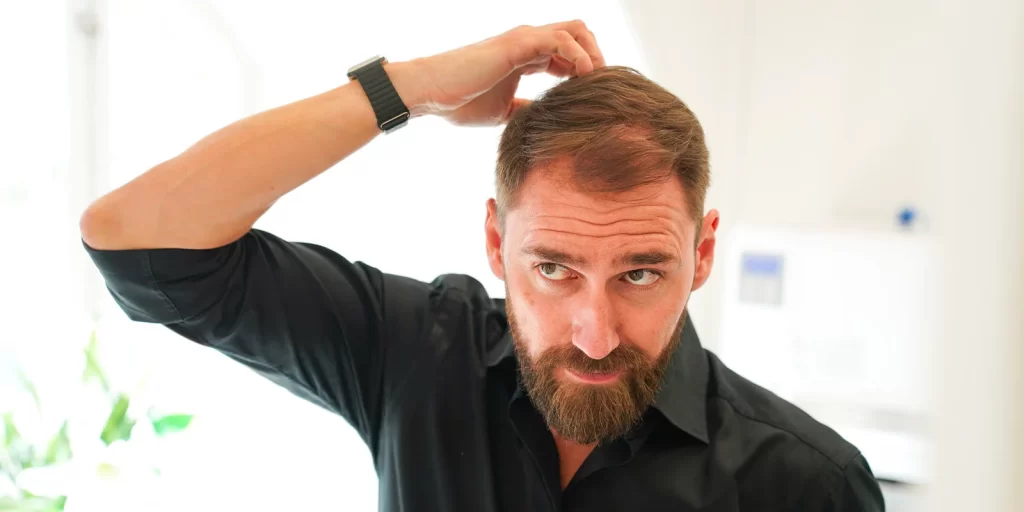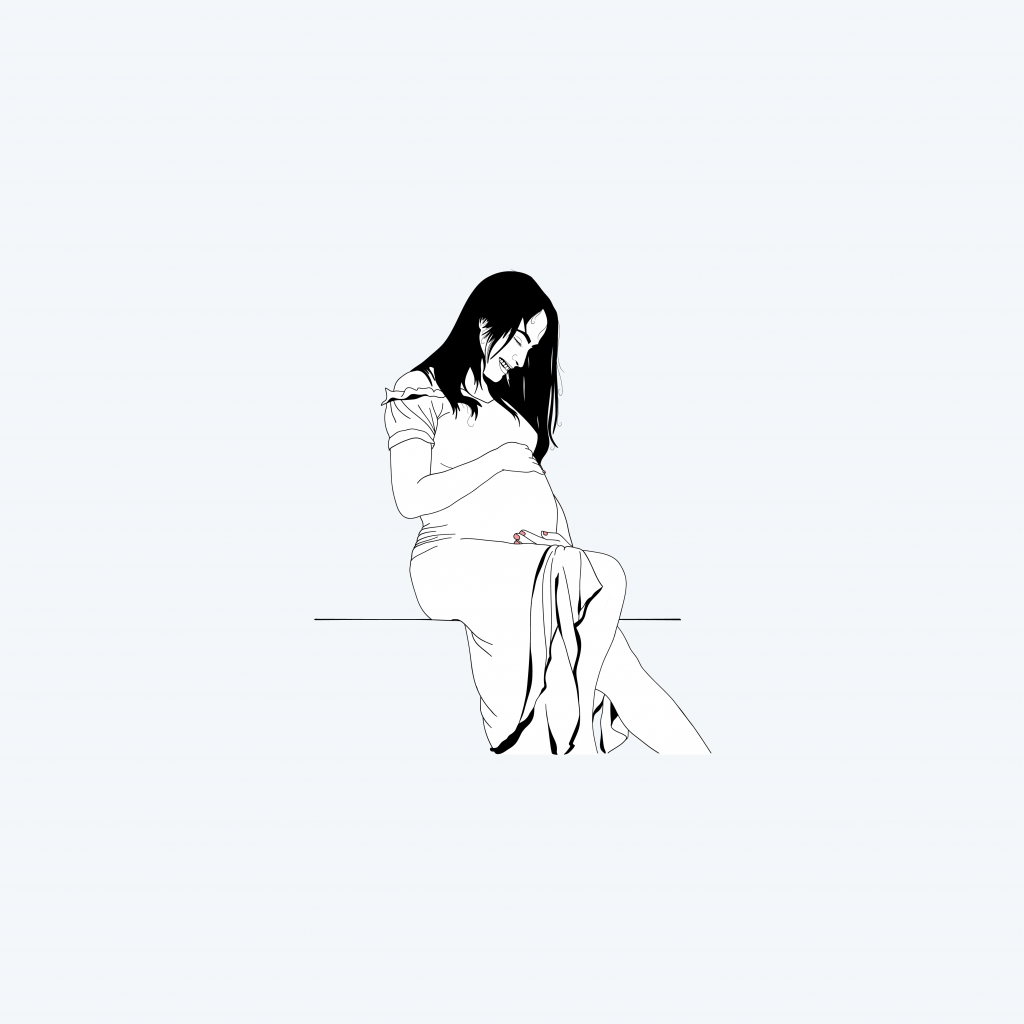A SKIN DISEASE
Seborrheic eczema in children
Seborrheic eczema has also been observed in newborn babies when the mother’s androgens are transmitted to the baby via the placenta.
Other diseases such as Parkinson’s disease, brain damage and/or stroke can also be associated with seborrheic eczema, as well as other factors that create imbalances in the body such as stress and chronic fatigue can both trigger eczema and make it worse.
The amount of the yeast Pityrosporon ovale (also called Malassezia furfur) has been shown to increase in seborrheic eczema. This excessive spreading of yeast causes irritation and inflammation of the skin.
Even if the inflammation is not directed at the hair follicle, the hair follicles can be affected as they are in close proximity to inflammatory cells. Inflamed skin is a very unhealthy environment for hair follicles to grow in, which is the real reason why many people lose hair as a result.


